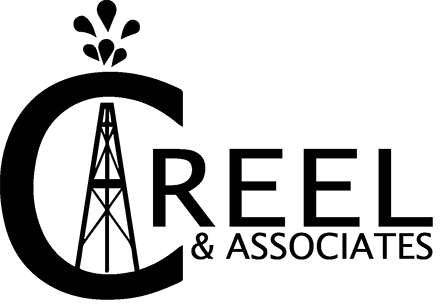Federal ONRR Unbundling
ONRR defines unbundling as “the process of taking gas transportation and/or processing fees in an ‘arm’s length’ situation and determining the allowed and disallowed costs for ONRR Royalty Reporting and Payment.” This process involves determining the point at which your gas satisfies the marketable condition rule. Along with providing the Offices of Natural Resources Revenue with a methodology as proof, you have properly distinguished allowed versus disallowed costs. ONRR Unbundling requires industry properly report and pay royalties and to correctly calculate transportation and processing allowances.
At Creel, we have experience with ONRR Unbundling. We rely not only on our internal knowledge of the subject, but also on third-party experts and relationships with the ONRR (Offices of Natural Resources Revenue). We focus on developing alternative methodologies for unbundling disallowed costs. These methodologies focus on your specific gas stream to ensure we are maximizing your allowed deductions. We begin with an in-depth review of your gas from the wellhead to the tailgate of the plant. Once we determine the interstate pipelines for which your gas can enter, we prepare a process flow diagram that details the movement of your gas into the plant. At this point, we divide the unbundling process into two parts: transportation costs and processing costs.
Examples of disallowed Federal Unbundling costs:
- Dehydration
- Compression
- CO2 Removal
- Buried Marketing Fees
Upon collecting all necessary data for the transportation system and processing plant, we develop an alternative ONRR unbundling methodology and UCA (Unbundled Cost Allocation). This methodology is submitted to the ONRR’s unbundling team for review. Once approved, we apply the UCAs to your royalty calculations.
Gas isn’t in marketable condition until it is an acceptable quality and pressure for the primary market in which it is sold. This typically refers to the quality and pressure specifications of the interstate pipelines where your gas is delivered. The Burlington decision outlined what is required of producers if they decide to take transportation and processing allowances and is detailed below:
- You must show any costs you deduct were incurred only to transport and process the gas and were not necessary to place your gas in marketable condition.
- Lessees have the burden of establishing that gas is in marketable condition and where that occurs.
The marketable condition rule, originally promulgated in 1942, applies to POP contracts. It is defined as “lease products that are sufficiently free from impurities and otherwise in a condition that they will be accepted by a purchaser under a sales contract typical for the field or area.” This means lessees are required to put the gas into marketable condition and pay royalties on the gross value of the gas without deduction for the costs of treatment (30 C.F.R 1206.153(i)). This is done in accordance with Offices of Natural Resources Revenue (ONRR) unbundling rules.
